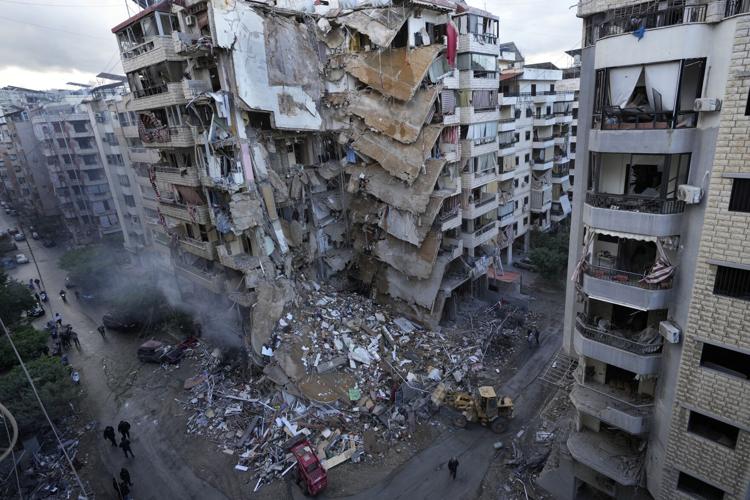Israeli Prime Minister Benjamin Netanyahu criticized the ceasefire agreement with Hezbollah, framing it within the context of what he described as Israel’s “unprecedented achievements” over the past year amidst a multi-front conflict.
Netanyahu asserted that Israeli operations had significantly weakened Hezbollah, claiming the group had been set back “tens of years.” He emphasized that the decision for a ceasefire would allow Israel to focus on the threat posed by Iran while maintaining military freedom to address any renewed threats from Hezbollah.
The Israeli Defense Forces reported that they had targeted 180 locations in Lebanon over the previous 24 hours, amid ongoing fears of rocket attacks and drone strikes from the neighboring country.
The ceasefire has sparked accusations of surrender from some of Netanyahu’s political rivals as well as dissent within his own party. Polls indicate that over 80% of Netanyahu’s support base is against the ceasefire, contributing to rising tensions among residents in northern Israel, many of whom have been evacuated from their homes.
Nationally, public opinion appears more divided, with one poll revealing that 37% of Israelis support the ceasefire, while 32% oppose it and 31% are uncertain.
Residents like Shelly, an English teacher in Shlomi, labeled the ceasefire decision as “irresponsible and hasty.” Rona Valency, who was evacuated from kibbutz Kfar Giladi, expressed unease about the prospect of Lebanese residents returning to nearby villages following the ceasefire.
“The only thing I can hope for is that Hezbollah will not infiltrate these villages and build a new network,” Rona stated, reflecting on the insecurity felt among Israelis living near the Lebanese border. Her husband, Onn, echoed these sentiments, asserting that true security rests not on the ceasefire’s terms but on a renewed understanding of their geopolitical reality.
While the ongoing conflict has resulted in military successes for Israel, such as degrading Hezbollah’s arsenal and infrastructure, the war has also left Israeli forces fatigued, its economy strained, and tens of thousands displaced. Many continue to question why Netanyahu, who has pledged to pursue “total victory” in Gaza, would agree to a ceasefire in the north.
Credit: BBC News




